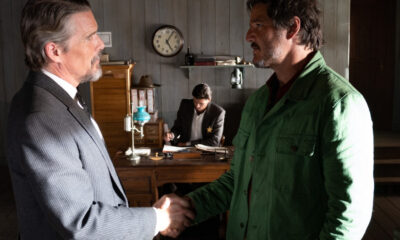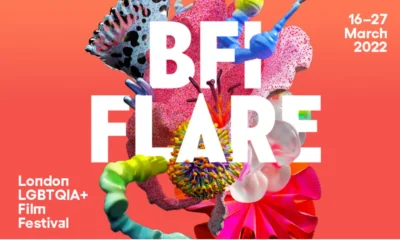News
WSA Film Music Composition Contest 2022: Young composers to score an excerpt from Murnau’s ‘Nosferatu’
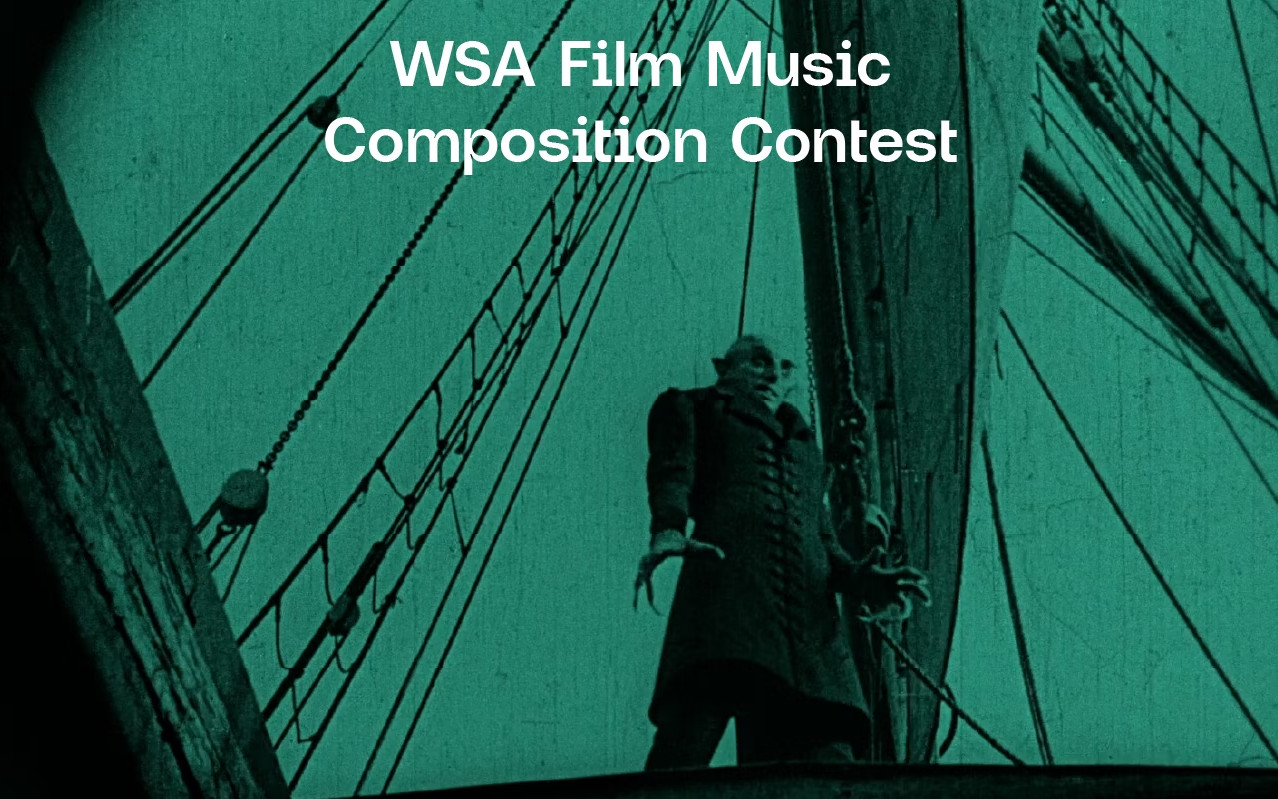
Young composers are the future of the film music industry, but rarely get the chance to showcase their talent to a (non-)professional (live) audience. Therefore, the World Soundtrack Academy each year offers screen composers under the age of 36 the chance to participate in the WSA Film Music Composition Contest and to win the Sabam Award for Best Original Composition by a Young Composer (worth €2.500) at the World Soundtrack Awards Ceremony & Concert. This year’s contestants are tasked with writing a score for an excerpt from F.W. Murnau’s centenary silent classic Nosferatu (1922).
For its latest edition of the annual Composition Contest, the WSAcademy invites young composers for screen under the age of 36 to write a score for a scene from Nosferatu, Murnau’s timeless classic which celebrates its 100th birthday this year. For a century now, vampire Count Orlok sows fear among everyone who beholds this German Expressionist adaptation of the well-known story of Count Dracula, while he chases and startles people, projecting that iconic shadow of his long fingers and bald head onto the walls. The chosen excerpt shows Orlok on a ship haunting yet another victim by arising from his coffin. The clip offers opportunities for sound effects and the musical expression of fear and horror.
A professional jury, including WSA President of the Board and conductor Dirk Brossé, will select three finalists who will be invited to Film Fest Ghent 2022 in October where they will attend all film music events. These three composers will have the honour to be hearing their music performed live by Brussels Philharmonic, conducted by Dirk Brossé, at the World Soundtrack Awards Ceremony & Concert on 22 October, after which the winner of the Sabam Award for Best Original Composition by a Young Composer will be announced. Previous winners include Dougal Kemp (excerpt from Nanook of the North), Ana Kasrashvili (excerpt from J’ai perdu mon corps), Pierre Charles (excerpt from Don’t Look Now), Logan Nelson (excerpt from Grave of the Fireflies) and more. Check all previous winners on the WSA website.
Registration
Composers can now register for the WSA Film Music Composition Contest on the WSA website. Upon payment of €75, participants will receive a confirmation email with more information and a link to the excerpt from Nosferatu. Deadline for submission is 17 May 2022.
Participants should carefully read the Rule Book before submitting. You can download the Rule Book below or check it on the website.
News
THE STRIKE | World Premiere at HotDocs April 28th
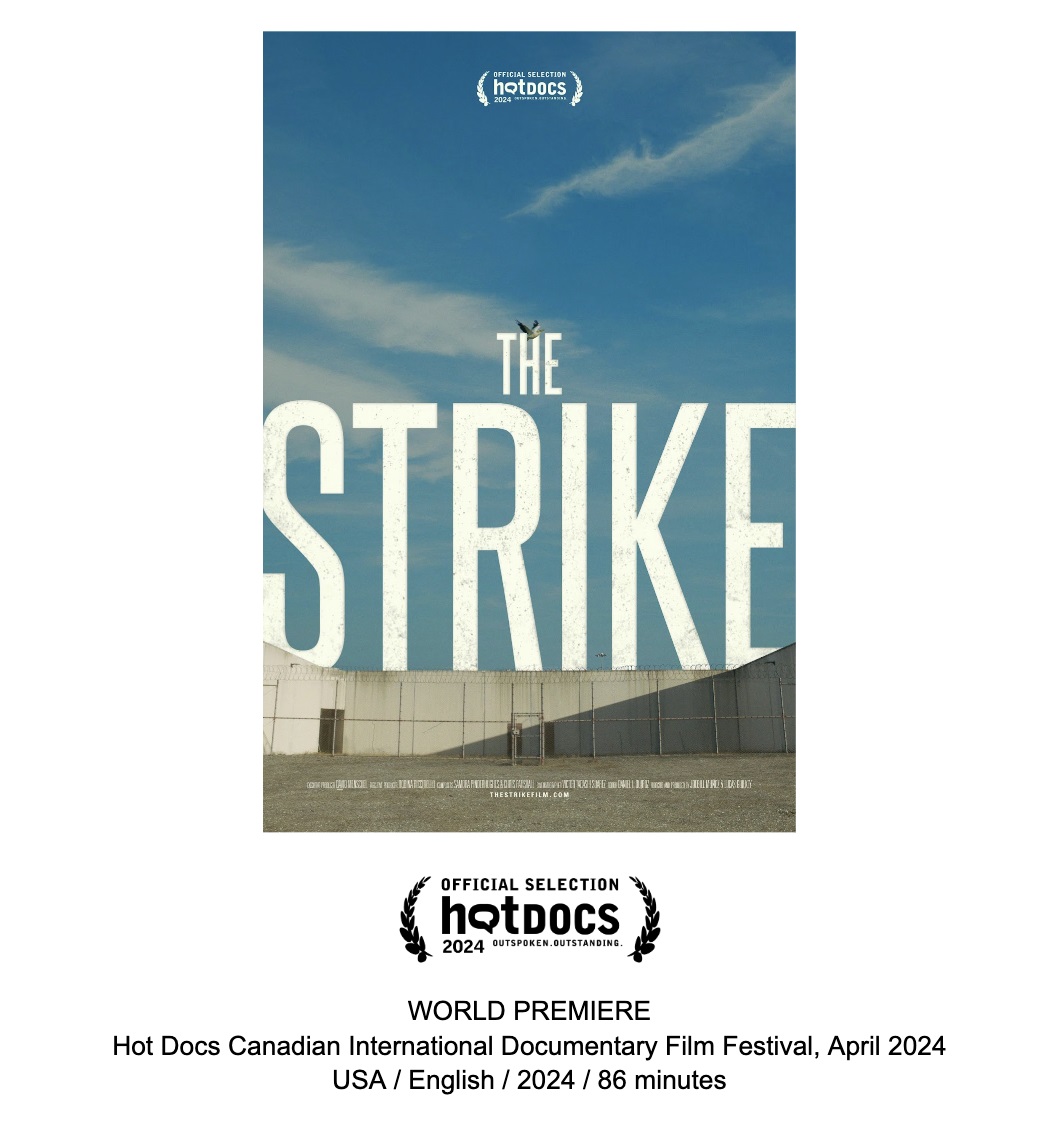
Amidst the redwood trees on the California-Oregon border sits one of the most infamous prisons in US history. Pelican Bay is a labyrinthine construction of solid cement blocks – a supermax prison – opened in 1989 and designed specifically for mass-scale solitary confinement. For decades, it held mostly Black and Brown men alone in tiny cells for indefinite periods based on questionable evidence. Then one day in 2013, 30,000 prisoners went on hunger strike.
THE STRIKE weaves together, thread-by-thread, a half century of personal and criminal justice history into a single, compelling narrative around the drama of the 2013 hunger strike to end indefinite isolation. Grounded in testimonies from the hunger strikers themselves, the film details how the protest was conceived from a whisper inside the halls of Pelican Bay to a colossal feat across California prisons. With unprecedented access to state prison officials and never-before-seen footage from inside Pelican Bay, THE STRIKE reveals the panic that gripped the highest echelons of state government.
Told through the stories of the men who bore the brunt of this practice, THE STRIKE goes beyond making a case against solitary confinement; it illuminates the power of organizing and prisoner-led resistance, and in doing so, flips the true-crime genre on its head.
News
YEMEK the Movie in Turkey

Cinema, a captivating tapestry of moving pictures, is often regarded as the legacy left behind by time travelers. Within this realm, actors and actresses breathe life into spirits that might otherwise be lost to the annals of time. While the film industry crafts narratives that may not transcend simple myths, certain cinematic gems etch themselves into our collective memory through compelling plots, innovative storytelling, and masterful cinematography.
One such cinematic masterpiece is “Yemek Türkiye” (Dining Turkey), a collaborative creation by FabUK Production and 24 Kare Yapım in Turkey. Helmed by nine directors across nine cities, under the overarching guidance of Ali Kaygısız, the film intricately weaves disparate stories around a central theme.
At the heart of this cinematic journey is the universal binding force of food. Beyond being a mere sustenance, food emerges as the focal point that unites people from diverse backgrounds. No matter where disputes originate, they find resolution at the communal dinner table. While meals may be an amalgamation of various ingredients, what truly converges are the myriad human stories. Each dish becomes a reflection of distinct emotional states, mirroring the nuanced similarities between humans and the art of gastronomy.
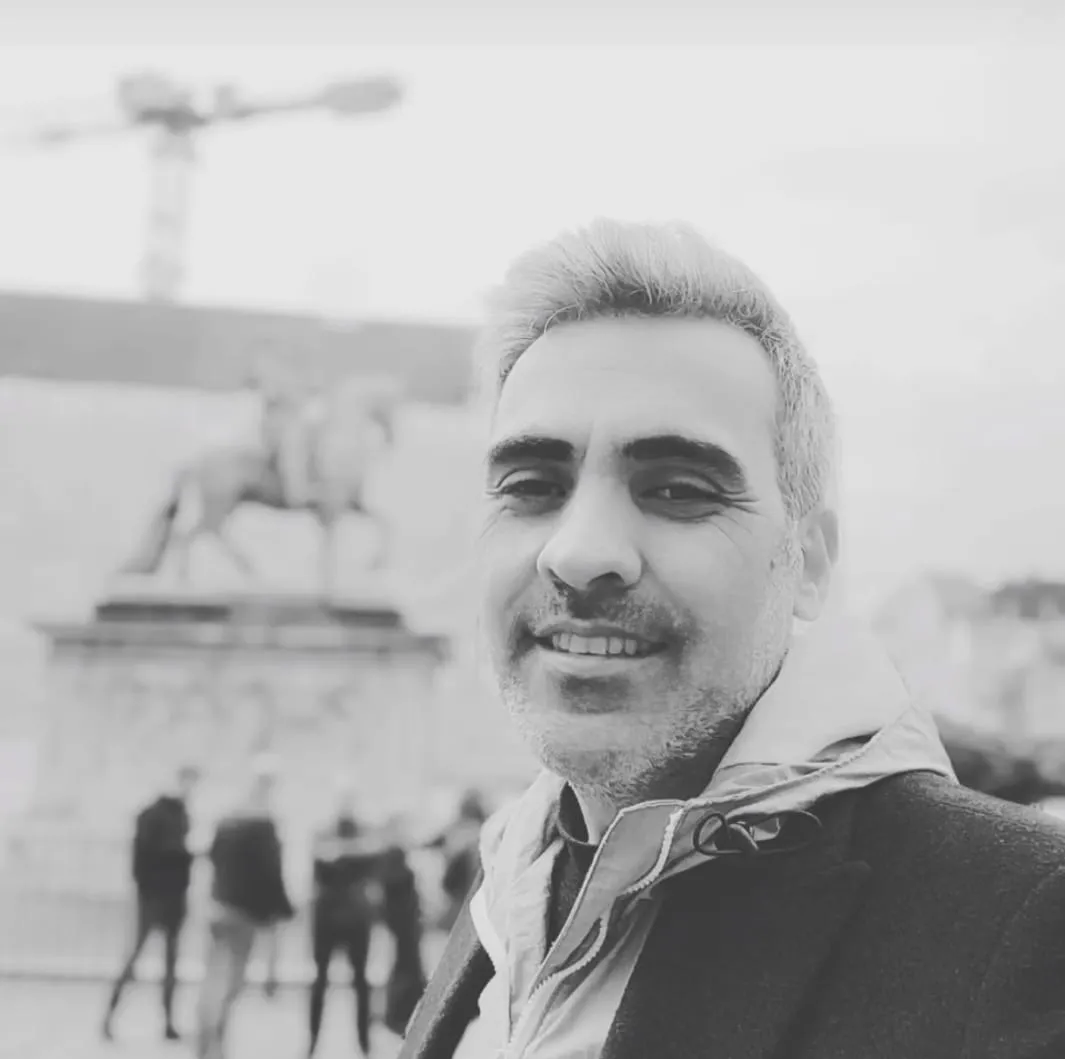
Actor Erdal Erbaş as Horace Walpole
Ebru Cengiz Ergen, a Turkish screenwriter, artfully resurrects the essence of the English writer, art historian, and politician Horace Walpole on the silver screen. In “Yemek Türkiye,” Walpole endeavors to concoct a flavor destined to linger across generations—a poignant tribute to the memory of his mother, a force he deems as the “most powerful emotion” in his entire life. As time unfolds in parallel, two souls, driven by a shared ambition and having weathered their fair share of trials, eventually find their paths intersecting in the intricate tapestry of time.
Enter Rüya, the contestant who, having faced humiliation as the last-place finisher in Turkey’s most-watched cooking competition, seeks redemption by crafting a new culinary masterpiece. At Strawberry Hill, the convergence point of Horace and Rüya, the Englishman listens intently to Rüya’s tales, seeking the missing element to complete his culinary passion. Rüya, in turn, narrates a rich tapestry of dishes from Turkey, the world’s gastronomic capital, infused with a perspective that harmonizes human psychology and drama.
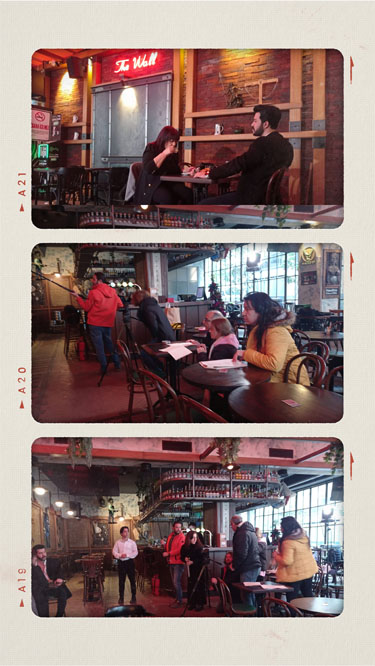
In “Yemek Türkiye,” the enchanting allure of English history seamlessly merges with the picturesque beauty of Turkey’s cities, creating a cinematic symphony that transcends borders and cultures, leaving an indelible mark on the canvas of storytelling.
İstanbul
Ankara
Bodrum
Kapadokya
Kahramanmaraş
Sivas
Bingöl
Gümüşhane
Diyarbakır
By: Sarah
News
Japanese director Naomi Kawase to preside over international competition Jury at Cairo International Film Festival
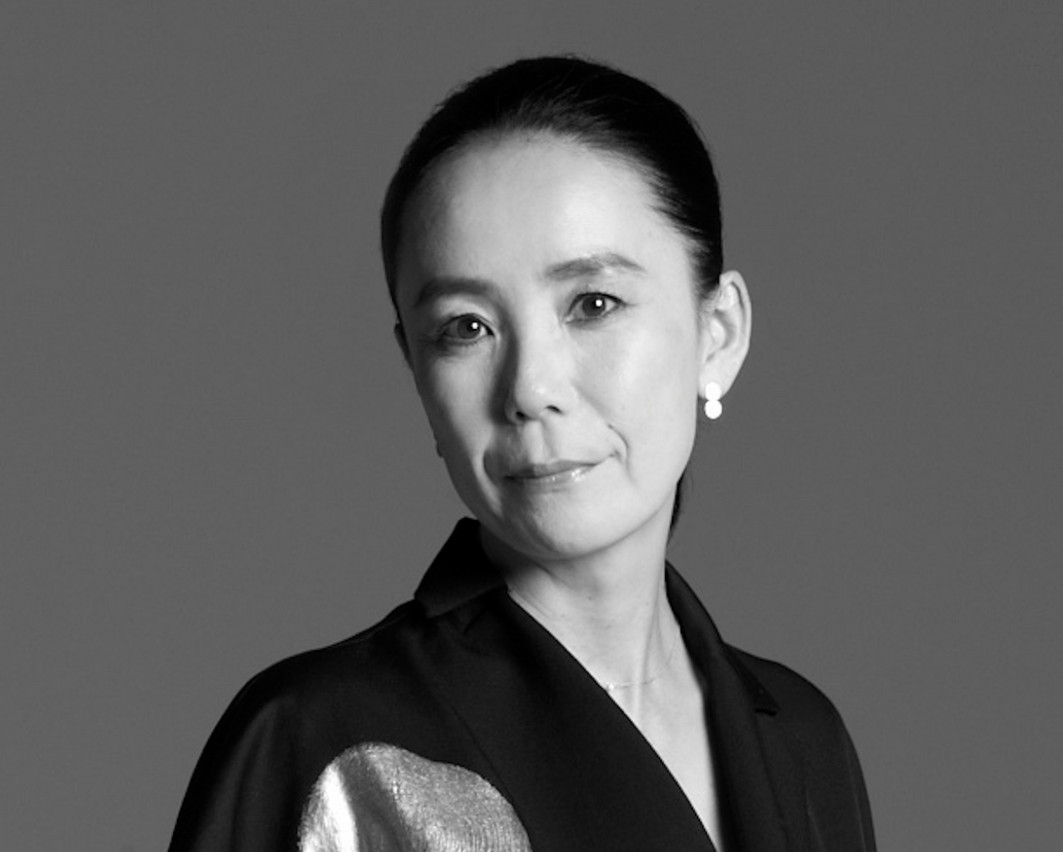
Japanese director Naomi Kawase will lead the International Competition Jury of the 44th Cairo International Film Festival (CIFF), which will run from 13 to 22 November this year.
Festival president Hussein Fahmy, welcomed the participation of Kawase’s, confirming her role to lead the international competition jury as a valued addition to the activities of the coming edition. Fahmy added that Kawase has a distinguished career and possesses great experience that qualified her to obtain prestigious awards from various international festivals.
Festival director Amir Ramses asserted that the presence of a cinematic talent as Naomi Kawase, as head of the international competition jury is a continuation of the successful tradition established by CIFF over the years to invite the world’s leading filmmakers to this position. Ramses also added that the presence of an award winning female director with such a successful career and rich filmography is great inspiration to female filmmakers in Egypt.
The prominent Japanese director and writer gained worldwide fame after achieving many honorable successes during her career that began in the late 1980s.
Born and raised in Nara, Japan, Naomi Kawase continues to make her films there today. Her pursuit to capture “reality” through film beyond simplistic documentary-fiction dichotomies has received worldwide acclaim.
She is considered the youngest person to win the Caméra d’Or (for best debut feature film) at the Cannes Film Festival, for Moe no Suzaku (1997). She also won three awards from the prestigious french festival for her films Mogari no Mori (2007) and Hikari (2017). She also received the Carrosse d’or from the Directors’ Fortnight (2009)
In 2000, her film Hotaru won both the FIPRESCI award and was nominated for the Golden Lion at the Locarno Film Festival. Meanwhile, her 2006 film, Tarachime, received a special mention at the same festival.
She is also a director of commercials, radio program DJ, essayist, and pursuer of various expressive activities including calligraphy and installations.
As executive director of the Nara International Film Festival, which she launched in 2010, she focuses on nurturing the next generation of visionaries and has produced nine films in this pursuit.
-

 Others4 months ago
Others4 months agoIFFR & Göteborg Film Festival Screenings Information | Borrowed Time by dir. CHOY Ji
-

 News4 months ago
News4 months agoYEMEK the Movie in Turkey
-

 Berlinale2 months ago
Berlinale2 months agoMartin Scorsese on the red-carpet bevor the awarding of the Golden Bear
-
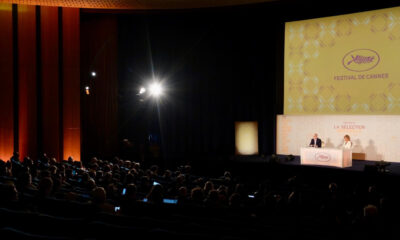
 Cannes2 weeks ago
Cannes2 weeks agoThe Official Selection of the 77th Cannes Film Festival unveiled!
-

 Berlinale2 months ago
Berlinale2 months agoKristin Stewart during the red carpet ceremony and premiere of ‘Love Lies Bleeding’ at the Berlinale 2024
-
Berlinale2 months ago
Matt Damon and Cillian Murphy during the red carpet ceremony and premiere of ‘Small Things Like These’ at the Berlinale 2024
-
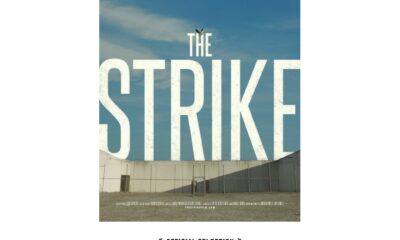
 News2 weeks ago
News2 weeks agoTHE STRIKE | World Premiere at HotDocs April 28th
-

 Berlinale2 months ago
Berlinale2 months agoSharon Stone on the red carpet bevor the awarding of the Golden Bear to Martin Scorsese

